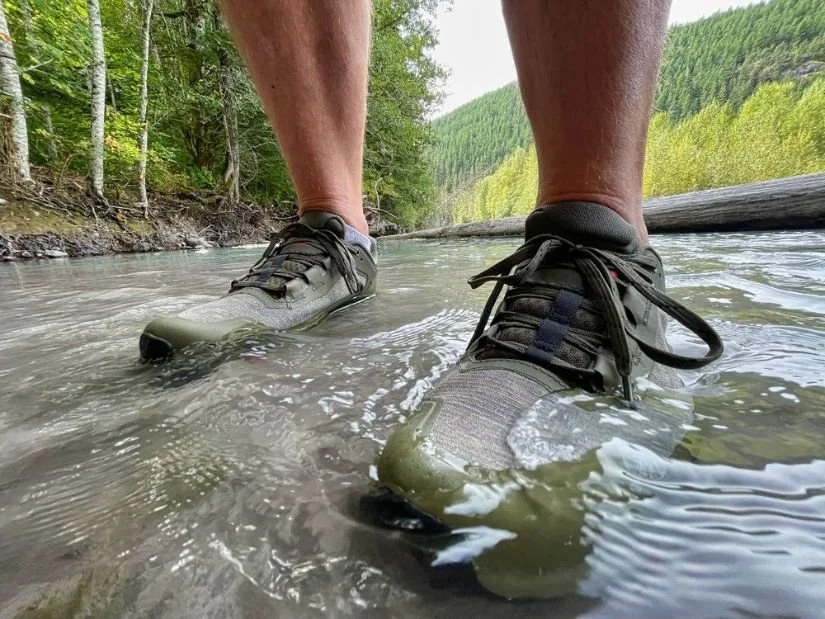How To Choose The Best Hiking Shoe For You
There is No “Best Choice For Everybody” when it Comes To Footwear
First things first: There is no “best choice for everybody” hiking shoe. Given the variety of foot shapes, personal preferences, climates, and end-uses, there isn’t one pair of hiking shoes that will work for all people (although a couple of pairs come close). When you’re choosing the best footwear for your feet, here are a couple of things to keep in mind:
Fit is the Most Important Factor in Selecting the Right Footwear
Choose footwear that matches your particular foot shape. Do you have wide feet? A high instep? Low volume feet? Many shoe stores will measure your feet and let you know the type you’ve got.
Once you’ve found a style that complements your foot shape, sizing is just as key. The salespeople I spoke with offered me a few pointers on fit. Find the pair that offers your toes about a half-inch of wiggle room. It helps to take the insole out of the shoe and stand on it. Heels should be snug to the back of the shoe wall, with just a little room for up-and-down movement. Walk around before hitting the trail and make sure your toes aren’t hitting the end on a downslope and that there aren’t any pressure points that will outlast a bit of break-in time. REI has some tips to help you get the best hiking shoe fit.
For day hiking and light backpacking, a hiking shoe can be just as sturdy as a hiking boot yet allow for more controlled movement on the trail.
“Match your Footwear to the Activity you’re Doing”
This is the advice that ACMG certified mountain guide Colin Garritty gave us. Choose shoes designed for the thing you plan to use them for, whether that’s hiking, running, or climbing.
There’s been a recent shift in the outdoor industry towards the minimalist shoe. Brands have made hiking footwear lighter, more nimble, and closer to street shoes; almost everything skews towards looking like a trail runner.
But, there are a lot of cases where a waterproof hiking shoe is the better option. From what Garritty told me, most people will benefit from the added sturdiness, stability, and protection from a pair of hiking shoes. And, if you’ve got a few pounds on your back, you’re going to find your body doing less work in a pair of hiking shoes than it would while wearing trail runners.
The shoes on our list are suitable for day hikes, groomed trails, and lightweight day hiking backpack. It is also suitable for lightweight backpacking or carrying a thru-hiking lightweight backpack.
For backcountry hiking or backpacking, most people will feel more comfortable with the added protection of a backpacking boot. Travelers will find some good options here, too, with hiking shoes being more versatile and easier to pack than boots. And, for long days spent walking on city streets, lightweight hiking shoes offer more support and cushioning on hard concrete than many sneakers do.
Why Do you Need a Special Shoe just For Hiking?
Won’t any old shoe do? Garritty says that good shoes will lessen the burden on your body. Whether it’s your pack weight or loose rock, good shoes will help you better navigate the rough terrain and make your body work less hard. They’re also going to reduce the risk of injury by providing stability and support. And our experience confirms this.




